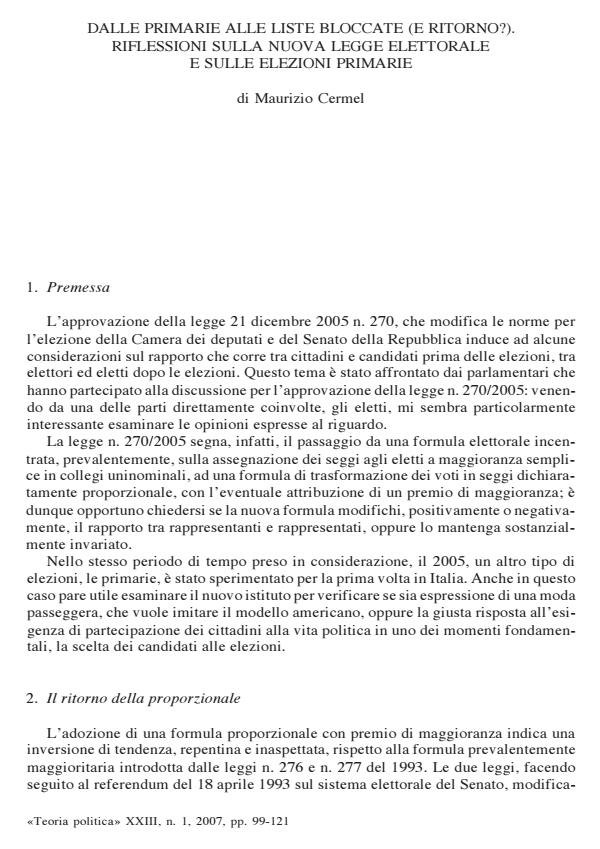Dalle primarie alle liste bloccate (e ritorno?). Riflessioni sulla nuova legge elettorale e sulle elezioni primarie
Journal title TEORIA POLITICA
Author/s Maurizio Cermel
Publishing Year 2007 Issue 2007/1
Language Italian Pages 23 P. 99-121 File size 140 KB
DOI
DOI is like a bar code for intellectual property: to have more infomation
click here
Below, you can see the article first page
If you want to buy this article in PDF format, you can do it, following the instructions to buy download credits

FrancoAngeli is member of Publishers International Linking Association, Inc (PILA), a not-for-profit association which run the CrossRef service enabling links to and from online scholarly content.
The approval of the law n. 270/2005 for the elections of the members of Italian Parliament gets to some opinions on the link between citizens and candidates before elections, and between voters and elected after elections: an issue faced by members of Parliament participating to the discussion on before its approval. The new law moves from single-member contituencies on the first-past-the-post electoral system (for 75% of the seats), towards a proportional system with the attribution of a majority prize. The assignment of the parliamentary seats is carried out among the competing lists linked among them, in a proportional way. The voters can choose their vote for a list without any preference, so that the political parties name the candidates in blocked lists: the voters cannot change the order of the list. This system was strongly disputed during the parliamentary debate. A remedy to the cleavage between voters and elected seems to come from the adoption of the primaries. Tuscany ‘s regional Council has approved the primaries by regional law n. 70/2004 in order to involve voters un the process of list-making, in order to build a constructive relationship between voters and candidates.
Maurizio Cermel, Dalle primarie alle liste bloccate (e ritorno?). Riflessioni sulla nuova legge elettorale e sulle elezioni primarie in "TEORIA POLITICA" 1/2007, pp 99-121, DOI: